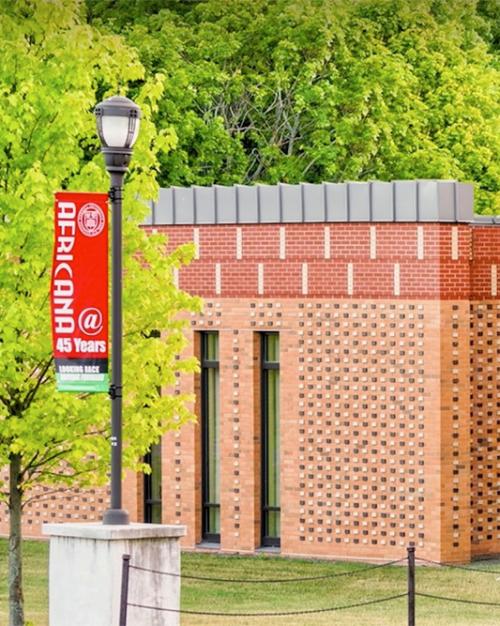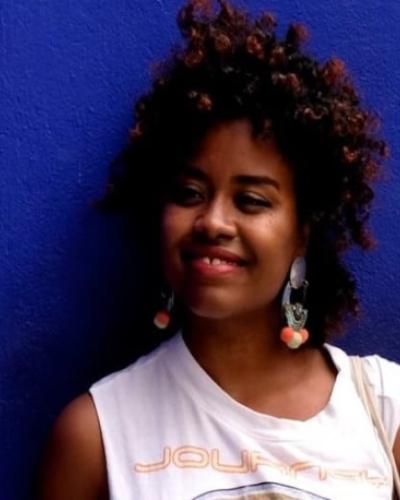Announcing the 2020-21 Fellows at the Society for the Humanities
Society for the Humanities Fellows
Leslie M. Alexander, History, Arizona State University
Legacies of Slavery in Modern-Day Policing and Mass Incarceration
Yomaira C. Figueroa-Vàsquez, English, Michigan State University
Archive of Disappearances: Afterimages of Afro-Puerto Ricans at the Edges of Empire
Katie Kadue, Comparative Literature, University of Chicago
The Language of Flowers: Commonplace Misogyny in Renaissance Lyric
Eunjung Kim, Women’s and Gender Studies and Disability Studies, Syracuse University
A Crip Sensorial Ecology of Dying and Afterlife Companions
Fatima Quraishi, Art History, University of California, Riverside
Necropolis as Palimpsest: The Makli Cemetery in Sindh,1380-1660
María Edurne Zuazu, Music
Ruin Sound
Society for the Humanities Faculty Fellows
Tao Leigh Goffe, Africana Studies and Feminist, Gender, and Sexuality Studies
After Eden: Afro-Asia Bioengineering and Wildlife in the Caribbean
Seema Golestaneh, Near Eastern Studies
Utopia Lost: Afghan Theories of Islamic Governance
Noah Tamarkin, Anthropology and Science & Technology Studies
Carceral Afterlives: Postcolonial Forensic Genetics in a Securitizing World
Irina R. Troconis, Romance Studies
Spectral Remains: The Politics of Memory in the Afterglow of Hugo Chávez’s Bolivarian Revolution
Mellon Graduate Fellows
Kun Huang, Comparative Literature
Racial Afterlives, Spectral Affinities: (Un)Translating Blackness in Modern Chinese Literature and Culture
Afifa Ltifi, Africana Studies
In the Wake of the “Middle Passage”: Maghrebean Blackness and the Afterlives of Trans-Saharan Slavery
Mellon Postdoctoral Fellows
Juan Manuel Aldape Muñoz, Performing & Media Arts
Choreotopias: Performance, State Violence, and the Near Past
Eman Ghanayem, Comparative Literature
Nations without Nationalisms: On Palestinian and American Indian Literary Imaginations
Mathura Umachandran, Classics
Critical Mythologies: Classical Reception and the Frankfurt School
2021-22 Focal Theme: Afterlives
The Society for the Humanities at Cornell University seeks interdisciplinary research projects for residencies that reflect on the theme of afterlives.
In times of revolt, times of shutdown, times of crisis, times of hope and transformation, the focal theme of afterlives raises the double question concerning all moments of transition, upheaval, or demise: What lives on and what comes after? What survives, what fades away, and what emerges changed?
In their diachronic trajectories, the humanities are inseparable from multifarious afterlives. This is evident in the ghosts and specters that haunt history and texts; in spiritual afterlives and rebirths; in artistic, psychic, and intellectual residues and traces; in the notion of ‘aftermath’ whether nuclear, natural, or traumatic; in reception studies and the re-use or re-coding of tales, texts, motifs, images, and ideas; in posthumanist futures, science fictions, speculative ecologies, and multispecies ethnographies.
Afterlives can be utopian projects – from heavenly lives to post-capitalist, post-work, and post-family societies – as well as strangely mundane worlds, in which the flip side of catastrophe is often the quotidian task of living on and with its aftermath. In fact, afterlives all too often have their violent modalities such as the enslavement of Black and Brown bodies persisting in the form of Jim Crow, segregation, mass incarceration, and daily microaggressions.
At stake in afterlives is, then, not only what lives on, but how such ‘living on’ occurs – its modalities, mechanisms, processes, and translations – in which something both recognizable and new, ongoing and ‘eventful,’ persistent and epochal is at work. Thus, we are interested in not only the afterlives of artistic movements, historical periods, literary styles, economic orders, political regimes, and religious institutions, but also how such afterlives are possible in the first place. What structures and enables (pragmatically, imaginatively) the afterlife of events, ideas, and institutions? What needs to take place for something truly new to emerge?
The theme of afterlives asks us to consult both histories and imaginaries, theory and practice, to interrogate how cycles are reproduced or radically ruptured.





